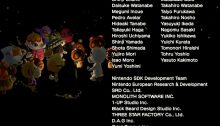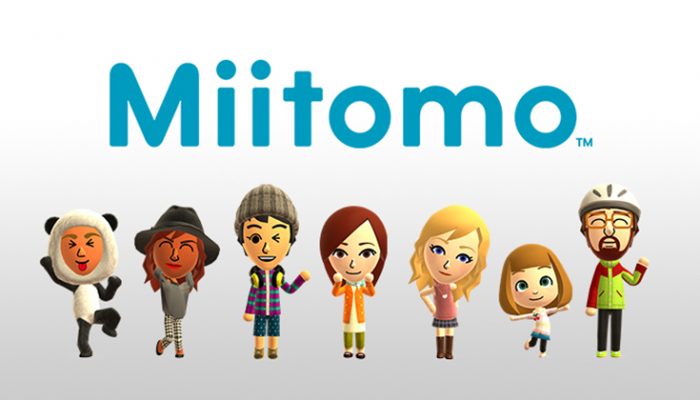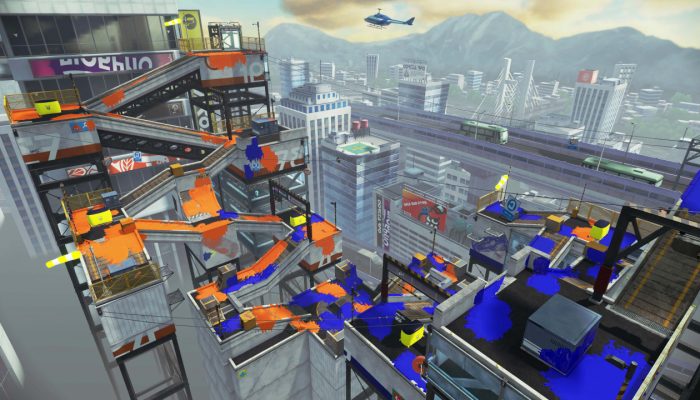 “With Animal Crossing: New Horizons, the speed at which it sold initially was far higher than originally expected. Consumers had high expectations for this title from the start, and so we thought we should aim to achieve total lifetime sales at around the level we’re at now, but sales numbers have grown faster than we expected right from release.”
“With Animal Crossing: New Horizons, the speed at which it sold initially was far higher than originally expected. Consumers had high expectations for this title from the start, and so we thought we should aim to achieve total lifetime sales at around the level we’re at now, but sales numbers have grown faster than we expected right from release.”
☆ NintendObs Event – Nintendo FY3/2020 (Part 2).
Question 1:
I’d like to hear more about the assumptions underlying the financial forecast for the current fiscal year ending in March 2021. Earlier, you discussed some of the risks if the impact of COVID-19 is prolonged or worsens further, but what improvements to the manufacturing situation do you anticipate as an underlying assumption of your hardware sales forecast? And with regard to the software sales forecast, to what extent are you taking into account the risk of major titles slated for this fiscal year being delayed? Finally, digital sales grew significantly in the fourth quarter of the previous fiscal year (ended March 2020). To what extent is that growth reflected in the forecast for this fiscal year?
Answer 1:
Shuntaro Furukawa (Representative Director and President):
During the previous fiscal year, when manufacturing in China was temporarily suspended in February due to COVID-19, it caused the delay of shipments of Nintendo Switch hardware intended for sale in Japan. The effect on our overall business performance, however, was minor. Although manufacturing has been gradually recovering since March, the impact of COVID-19 spread globally in the second half of March and in April, which made it impossible to procure sufficient quantities of some components. As a result, we are not in a position to be able to produce the full quantity of units we actually want to produce. That said, there are signs of gradual improvement, and so we anticipate that the impact of COVID-19 on production will subside to some degree by summer and that the volume we will be able to produce throughout the year will align with our sales forecast units for this fiscal year. But if the impact is prolonged or worsens further, and parts procurement and/or manufacturing are affected again, then there is a possibility that we will be unable to produce the quantities needed to fulfill our current sales forecast. With regard to software, we have more titles planned for release in this fiscal year beyond the ones we have already announced, and we have accounted for those in the financial forecast. However, many employees of Nintendo and of our partner companies are currently working from home, and the differences in development environments between home and office may make it difficult to release titles as currently planned, should the impact be prolonged. At this point, we are presenting our financial forecast on the assumption that titles can be released as planned.
The release of Animal Crossing: New Horizons greatly contributed to the high percentage of digital sales reached in the fourth quarter of the previous fiscal year. Around 50% of the consumers who purchased this title in Japan, the US, and Europe did so digitally. The Animal Crossing series is suited to being played as a digital version, and we believe that the timing of its release, coinciding as it did with the rise in calls to remain at home, resulted in some consumers choosing the digital version. We see the very high percentage of digital sales as being due to these unique factors, and have not premised our financial forecast on this trend continuing as it has. On the other hand, once consumers experience the convenience of digital downloads, they tend to continue to choose digital downloads in the future, so we think that the percentage of digital sales will increase overall.
Question 2:
I want to ask about the financial forecast for this fiscal year, specifically about differences in the outlook before and after the impact of COVID-19 expanded. How did you think the sales units of Nintendo Switch hardware would trend right after the report of third-quarter results in the last fiscal year (which was before the impact of COVID-19 expanded)? Also, the software sales volume forecast seems conservative. Does this have anything to do with a delay in development due to the impact of COVID-19?
Answer 2:
Furukawa:
Sales and profits for the fourth quarter of the last fiscal year both far exceeded the revised forecast announced in January 2020, and I think that was mostly due to the release of Animal Crossing: New Horizons. If you subtract the effect of that title, then the numbers in our forecast for this fiscal year are almost the same as the revised forecast for the previous fiscal year announced in January. Moreover, the numbers are relatively high compared to the initial earnings forecast announcement for last fiscal year and the actual results for the fiscal year ended March 2019. Nintendo Switch has just entered the middle of its life cycle, and there are two system versions in the family – Nintendo Switch and Nintendo Switch Lite – so we have not changed our view that it is possible to aim for growth that is unlike the life cycle of any other hardware to date. We also see this as an environment where we can continue to release software by focusing resources on software development for Nintendo Switch. Even before COVID-19 grew to have such a wide impact, we were forecasting nearly level sales of hardware for this fiscal year (meaning that sales volume would not increase significantly but remain at high levels) and intended to continue our work to broaden the Nintendo Switch install base. With regard to software, we put out an early-stage forecast reflecting the sales volume we thought would be possible this fiscal year if titles could be released as scheduled. We did not intend to be extremely conservative with the numbers, but the forecast reflected the momentum of the Nintendo Switch at the time.
Question 3:
Considering the potential for lifestyles to change significantly even after the end of the situation with COVID-19, do you think that the entertainment industry will also change? What are your strategies and positions regarding this?
Answer 3:
Furukawa:
At this point, we cannot fully predict the effects of the situation with COVID-19, so we are working on a variety of activities under the premise that the effects will be long-term. For example, there have been cases where the marketing of products did not move forward as we had planned, so we are taking a flexible approach in thinking about what we can do under these circumstances. Whether it’s with employee working practices or the variety of initiatives undertaken by the company, we believe that it is very important to respond flexibly, without being constrained by any conventional approach.
It would be presumptuous for me to talk about the entire entertainment industry, but people around the world are in the difficult position of having no choice but to stay at home right now. We often describe Nintendo as “an entertainment company that brings smiles to people all over the world,” and (under this situation,) we think every day about what we can do that is unique to Nintendo. Even if we anticipate that many things will change, no one really knows what those changes will be at this point. For this reason, I think that we as a company and I personally will have to be flexible to adapt to whatever potential scenarios arise in the future.
Question 4:
Regarding the information about risks related to COVID-19, you explained earlier that it is affecting parts procurement. What parts are lacking in the Nintendo Switch production process? Given that demand for smartphones has not dropped, I suspect there will be concerns about insufficient semiconductor memory in the medium term. Can Nintendo revise its Nintendo Switch hardware production plan upwards in terms of its production volume? In addition, regarding software development, we have heard from other companies that creating assets such as textures (the patterns and images applied to the surface of 3D objects) is very difficult while working remotely. Have you had such issues?
Answer 4:
Furukawa:
I cannot provide any comment from Nintendo about which parts have procurement issues at this time, because this relates to other companies’ business with us.
Regarding the question of whether the procurement situation for semiconductor memory or other components is affecting our production plans, considering the demand for smartphones and other products going forward, this situation has not imposed any restrictions on our production or sales plans in particular.
As for game development work being done remotely, since there are indeed big limitations on what can be done from home, we do think this will have a large impact. Nintendo has development partners and development offices not just in Japan, but all over the world. The first locations to be affected were the offices in Europe and America, where working from home started early. Then our offices in Japan also switched to working from home. In the case of Japan, this had a major impact on development because we did not already have a remote development environment in place. But even so, we are gradually gaining experience in assessing what can and cannot be done remotely, and in determining how much progress we can make on the work we are able to do from home. Please be aware that the impact on game development in terms of both hardware and software may potentially increase as the amount of time spent working remotely increases.
Question 5:
On the topic of software, I understand that the release timing (of new software titles) needs to be adjusted flexibly to reflect changes in the surrounding environment from now. On the other hand, even in the case that the company will not be able to release new titles as planned, I feel that the number of titles that have already been released, together with the release of Animal Crossing: New Horizons encouraging growth in the number of new users, as explained in the financial results briefing, has resulted in good momentum. I expect that many of these new users also don’t yet own the evergreen titles. Perhaps it may also become necessary to further consider how well you can sell the titles that have already been released, and to what extent these titles can drive hardware sales. Could you discuss how sales strategies of this kind and others are changing under the current circumstances?
Answer 5:
Furukawa:
To give you some more context for my earlier comments (See Question 3) about striving to work flexibly under these circumstances, our thinking is that more than ever before, we can’t rely only on new titles, but we need to ensure that we are communicating the appeal of our already-released, evergreen titles to consumers, and creating opportunities for consumers to experience them. For example, we feel that the potential demand has not yet been filled for Ring Fit Adventure, which released last year and continues to be in short supply worldwide. Accordingly, we will put emphasis on its sales as a core title during this fiscal year as well. We are continuing to manufacture Ring Fit Adventure, and we expect to be able to continue to supply it to the market, albeit gradually. We want to turn that potential demand into actual demand and see steady sales. With Animal Crossing: New Horizons, the speed at which it sold initially was far higher than originally expected. Consumers had high expectations for this title from the start, and so we thought we should aim to achieve total lifetime sales at around the level we’re at now, but sales numbers have grown faster than we expected right from release. As mentioned during the explanation of the financial results, fans of past titles in the Animal Crossing series who are now in their 20s and 30s are notable among those first experiencing the new title, and within that group is an especially high number of female fans. We are happy to observe that, after that, these individuals have shared about the game with others, including family, friends, and acquaintances, and this further expanded through the spontaneous and widespread sharing of information on social media. As a result, many more consumers are purchasing the title than we had initially expected. And since this phenomenon has led to many consumers purchasing new hardware, I think a key topic for this fiscal year will be how to recommend a second or third title to them, and how we can leverage our already-released titles in doing so.
Question 6:
The digital business grew significantly in the fourth quarter, but could you provide a quantitative discussion of, for example, Nintendo Switch Online paid membership numbers and ongoing initiatives for Nintendo Accounts?
Answer 6:
Furukawa:
The ratio of digital sales in the fourth quarter was relatively high in the fiscal year ended March 2019 as well. We assume this was likely due to many cases in which consumers, who purchased hardware during the holiday season, chose easily accessible digital version of software when purchasing their second and third software titles. In the fiscal year that just ended, Animal Crossing: New Horizons is well-suited to being played as a digital version, which we consider was a factor in the relatively high ratio for digital sales in the fourth quarter.
Regarding the number of paid memberships for Nintendo Switch Online, we do not plan to disclose a specific number this time, but memberships are increasing steadily with the expanding hardware install base beyond 15 million accounts, the number we have already announced at the Corporate Management Policy Briefing in January 2020. The number of paid memberships has particularly grown since the release of titles that support online play, like Pokémon Sword and Pokémon Shield and Animal Crossing: New Horizons. By adding elements that make games even more fun to play and by increasing the appeal of the service itself, we hope to continuously grow this into a service that makes Nintendo Switch even more enjoyable and convenient for consumers to play. Regarding Nintendo Accounts, we consider them to be an important way to build lasting relationships with consumers. With the distribution of games like Mario Kart Tour, the number of consumers with Nintendo Account surpassed 100 million, and this number has continued to rise greatly since then. We will continue our efforts to build trust with consumers so that they will want to keep their relationships with Nintendo over the long term.
Question 7:
Regarding the development of the Nintendo Switch business in China, can you tell us about actual sales results last fiscal year and what your sales plans are for this fiscal year?
Answer 7:
Furukawa:
Sales in China are included in the “Other” column in the “Consolidated sales information” in the Earnings Release. This “Other” region includes not only sales in China, but also sales in other regions in Asia and Australia. Sales in China did not yet account for a large amount in the results of the previous fiscal year. We do not expect sales in China to greatly impact the overall forecast for the current fiscal year either. Currently, there are three software titles being offered in China. We are seeing steady sales growth for New Super Mario Bros. U Deluxe, released on December 10, 2019, as well as for Mario Kart 8 Deluxe and Super Mario Odyssey, both released on March 16, and we hear from Tencent that some consumers are buying these games and the new hardware together. We will devote time to continuing to work with Tencent to demonstrate the unique appeal of Nintendo products to the consumers of China.
Question 8:
Your forecasts for sales units of Nintendo Switch hardware and software this fiscal year are both lower than the actual results for the previous fiscal year, so why are you planning to increase advertising expenses by around 9 billion yen?
Answer 8:
Furukawa:
We consider advertising to be a very important activity for building awareness of our products. Especially now that Nintendo Switch has entered the middle of its life cycle, it is important to pursue activities that also create better awareness of our products for people who do not normally play games. We believe that we will potentially reach a situation in which we need to spend more for advertising now than we did when the hardware was first launched. On the other hand, spending money on advertising does not necessarily lead to greater sales, so we must carefully monitor the effectiveness of the advertising and spend money where it is needed.
Question 9:
I’d like to hear your thoughts about the lineup and revenue for mobile applications for this fiscal year.
Answer 9:
Furukawa:
Regarding the development of our mobile business, while focusing on operating the six applications that are currently available, we are continuing to develop new applications. As for these new applications, we are not yet at the stage where we can announce any new information.
Considering how we will position our mobile business in the future, we are not necessarily looking to continue releasing many new applications for the mobile market as much as we are looking at the continuation of our mobile business as a way to make active use of Nintendo IP (game characters, worlds, and so on) in the interest of maximizing the entirety of Nintendo’s business. For us, the direct purpose of releasing mobile applications is to bring games that use Nintendo IP to the large install base of smart devices worldwide, bringing more consumers into contact with the worlds of Nintendo games and also bringing ongoing services to fans of individual Nintendo IP on mobile platforms. For example, Super Mario Run has been downloaded on over 400 million devices, and Mario Kart Tour continues to be played by a very large number of consumers. As a more recent example, the number of active and new users of Animal Crossing: Pocket Camp has increased greatly in tandem with the release of Animal Crossing: New Horizons. On the other hand, we believe Animal Crossing: Pocket Camp has become a good way to invigorate the entire Animal Crossing IP and for potential Animal Crossing: New Horizons players to recognize the franchise. We want to use these activities to expand our contacts with consumers who are introduced to Nintendo’s unique entertainment proposals.
Regarding the earnings forecast for this fiscal year, we are not expecting a major increase in sales for the mobile business.
— Financial Results Briefing for Fiscal Year Ended March 2020 (Conference Call)
Source: Nintendo JP.
At NintendObserver, the comments are on Discord.
Click on Community to learn more. 🙂
…
…Wanna play? Buy a Switch.
And if you’ve already got yours, here are all the games already available on the platform. 😀



